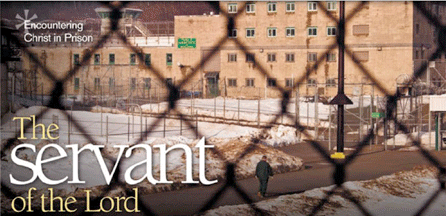The "Stuck Inside Literary Award": At Sea with Patrick O'Brian
 You might remember from "Descent into Lent" last year that my typewriter has some basic memory. I can type up to ten pages and then go back to edit them. It isn't anywhere near what most of you write with, but it's far better than simply typing on paper. Being able to edit makes a big difference.I spent three days working on this post, and finally finished it yesterday at 6:00 PM. Then I had to unplug my typewriter to heat water for some Asian noodles my friend, Pornchai received in his twice-a-year food package. These cells have only one receptacle with four single outlets, so plugging something in often means unplugging something else. We constantly play musical plugs. Anyway, the food was far better than any of the "in-house specials" I described in "Looking for Lunch in All the Wrong Places."You may already know where this is going. When I plugged my typewriter back in to print my post, the screen flashed "memory lost." Three days of work was just gone with nothing to show for it. It was the Vigil of the Feast of Saint Maximilian Kolbe who would not have been very proud of my initial reaction.Then it was mail call. I wonder sometimes if TSW readers who send snail mail to me have any sense at all of the irony of their timing. I opened a letter from a reader in Bellmawr, New Jersey who wrote, "Your writing is so full of patience, humility and love." Then another from Fairhope, Alabama who wrote: "Through your writings, it is apparent that you have overcome fear, hate, anger, abandonment." "Oh Great!" I told Pornchai. "Now I can't throw my typewriter down the stairs" which is exactly what I felt like doing. I want to thank these two wonderful readers for their support and encouragement, and for the reminder of what it means to be a priest in an awful place.Sometimes I feel that I just don't have the tools to write, and sometimes I want to quit, but the mail from these readers reminded me that this is not my call to make. As I wrote in "SNAP Judgements Part I,” the very existence and impact of These Stone Walls seems such an unlikely grace that it requires surrender - including surrender to its limitations. I imagine young David had to make that same surrender standing before Goliath (1 Samuel 17:50). Sometimes I look at the agendas surrounding the priesthood scandal and see Goliath standing there, smirking at my fragile typewriter.I often let my friend, Pornchai read mail from readers. It gives him hope, and a feeling of being connected with other Catholics beyond these stone walls. It's part of our Consecration to Saint Maximilian's Knights at the Foot of the Cross described in "Saints and Sacrifices" that we both offer each day in prison for TSW readers. Yesterday, after three days of work got deleted, I hope there was some special grace in the offering of that day for the two people who wrote to me. This morning, Pornchai had a visit, after a 20-year absence, from someone who reconnected with him after reading of him on TSW. He left a note on my typewriter as he was going out the door. It says, simply, "Start over."LONG WEEKENDS IN THE SLAMMERPrison is like a parallel universe. Many of the things you look forward to in the real world are reviled in this one, and long holiday weekends top that list. For three consecutive days, all work is cancelled, all programs are closed, educational classes and library time are suspended, and prisoners are locked into a prison within the prison. On long weekends, we’re not just imprisoned within the imposing wall that runs the prison perimeter, but behind locked doors within that wall. Prisoners dread long weekends.In "Holidays in the Hoosegow," last Thanksgiving, I wrote of how difficult it is to see holidays in context from inside these walls. That post even has a photo of the building I live in, found by our editor in an article on Catholic prison ministry. You'll see an imposing guard tower in the back of the building, and this cell is just at its base.If Thanksgiving is one of the bigger holiday challenges in prison, Labor Day runs a close second. The effect is mostly psychological, I think. Labor Day signals the coming end of summer which, for anyone in prison in New Hampshire, means that close on its heels is the sort of confining winter I wrote of in "The Books of Long Winter's Night."
You might remember from "Descent into Lent" last year that my typewriter has some basic memory. I can type up to ten pages and then go back to edit them. It isn't anywhere near what most of you write with, but it's far better than simply typing on paper. Being able to edit makes a big difference.I spent three days working on this post, and finally finished it yesterday at 6:00 PM. Then I had to unplug my typewriter to heat water for some Asian noodles my friend, Pornchai received in his twice-a-year food package. These cells have only one receptacle with four single outlets, so plugging something in often means unplugging something else. We constantly play musical plugs. Anyway, the food was far better than any of the "in-house specials" I described in "Looking for Lunch in All the Wrong Places."You may already know where this is going. When I plugged my typewriter back in to print my post, the screen flashed "memory lost." Three days of work was just gone with nothing to show for it. It was the Vigil of the Feast of Saint Maximilian Kolbe who would not have been very proud of my initial reaction.Then it was mail call. I wonder sometimes if TSW readers who send snail mail to me have any sense at all of the irony of their timing. I opened a letter from a reader in Bellmawr, New Jersey who wrote, "Your writing is so full of patience, humility and love." Then another from Fairhope, Alabama who wrote: "Through your writings, it is apparent that you have overcome fear, hate, anger, abandonment." "Oh Great!" I told Pornchai. "Now I can't throw my typewriter down the stairs" which is exactly what I felt like doing. I want to thank these two wonderful readers for their support and encouragement, and for the reminder of what it means to be a priest in an awful place.Sometimes I feel that I just don't have the tools to write, and sometimes I want to quit, but the mail from these readers reminded me that this is not my call to make. As I wrote in "SNAP Judgements Part I,” the very existence and impact of These Stone Walls seems such an unlikely grace that it requires surrender - including surrender to its limitations. I imagine young David had to make that same surrender standing before Goliath (1 Samuel 17:50). Sometimes I look at the agendas surrounding the priesthood scandal and see Goliath standing there, smirking at my fragile typewriter.I often let my friend, Pornchai read mail from readers. It gives him hope, and a feeling of being connected with other Catholics beyond these stone walls. It's part of our Consecration to Saint Maximilian's Knights at the Foot of the Cross described in "Saints and Sacrifices" that we both offer each day in prison for TSW readers. Yesterday, after three days of work got deleted, I hope there was some special grace in the offering of that day for the two people who wrote to me. This morning, Pornchai had a visit, after a 20-year absence, from someone who reconnected with him after reading of him on TSW. He left a note on my typewriter as he was going out the door. It says, simply, "Start over."LONG WEEKENDS IN THE SLAMMERPrison is like a parallel universe. Many of the things you look forward to in the real world are reviled in this one, and long holiday weekends top that list. For three consecutive days, all work is cancelled, all programs are closed, educational classes and library time are suspended, and prisoners are locked into a prison within the prison. On long weekends, we’re not just imprisoned within the imposing wall that runs the prison perimeter, but behind locked doors within that wall. Prisoners dread long weekends.In "Holidays in the Hoosegow," last Thanksgiving, I wrote of how difficult it is to see holidays in context from inside these walls. That post even has a photo of the building I live in, found by our editor in an article on Catholic prison ministry. You'll see an imposing guard tower in the back of the building, and this cell is just at its base.If Thanksgiving is one of the bigger holiday challenges in prison, Labor Day runs a close second. The effect is mostly psychological, I think. Labor Day signals the coming end of summer which, for anyone in prison in New Hampshire, means that close on its heels is the sort of confining winter I wrote of in "The Books of Long Winter's Night."
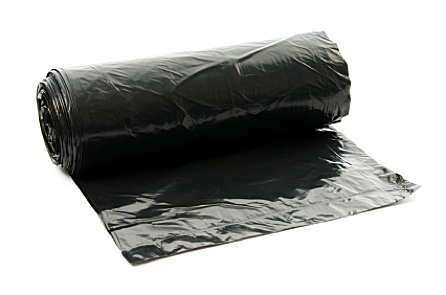
About the only upside of any long weekend is the fact that prisoners don't usually "get bags" then. That's a prison euphemism for being moved in the night, sometimes to a better place and sometimes a far worse one. Sometimes it's even to another prison where the unknown is a source of great anxiety. When it happens, the usual procedure is for guards to give a prisoner a few plastic trash bags after lockdown at night. With these, the prisoner must pack his belongings, and, by morning, he is gone.Awhile back, my friend, Scotty, "got bags." During the night, the whispered rumor made its way from cell to cell until it reached mine at the very end of the line. "Scotty got bags." It made my heart sink, but I also knew that at least Scott was heading in the right direction toward eventual freedom. Every prisoner knows that footsteps in the night and the rustle of plastic bags could mean moving, and possibly never seeing friends again in this life.There was talk in this state of shipping up to half the prisoners from here to private, for-profit prisons in Texas and Oklahoma to save money on the prison budget. It had most of the prisoners here very anxious, especially those who would lose all contact with their families and children. But the idea seems to have been put on hold pending further studies about the, fiscal bottom line. For those who live in anxiety over this, long weekends at least provide a brief respite from it. Prisoners are rarely moved on weekends and holidays. For me, the biggest downside of a long weekend is that the ballfield is closed for that entire time. In the northwest corner of this prison complex is a baseball field with a quarter-mile walking track on its perimeter. I wrote of it in one of my earliest posts on These Stone Walls, "Field of Dreams." It's the sole place where prisoners here can walk.Along one side of the field runs the towering prison wall, but the other three sides are surrounded by trees populating forested hills that stretch off into the distance. In between me and those trees is a barrier of two 20-foot high chain link fences spaced six feet apart, topped with spiral after spiral of imposing razor wire that decorates prisons everywhere. It's a testament to the power of trees that the visual cortex of a prisoner's brain can tune out all the fences, and razor wire and see the forest. When I first went to walk in that field seventeen years ago, I was intimidated by the sight of all those prison barriers. Now I see only the trees beyond, and the view of freedom.I love to walk in the field on weekday mornings when it's scheduled to be open. Guys my age - I was 41 when I was sent here and now I'm 58 - need to move. I can usually walk three or four miles in the one hour I have in that field, but this summer was among the very worst for access to it. It opened on average of only two mornings per week. So I get there when I can, and it's the source of my relative sanity.The long Labor Day weekend means that the field will be closed, and I will once again be locked in, but it also signals the coming end of summer. In just a month's time, in October, the field will close until sometime in May, and I will miss it terribly. This is the most whining about prison I will ever do.SAILS ON THE HORIZONWhen a long weekend is coming, I usually try to find a book to get me through it. Over the last few years, I have read just about everything from some of my favorite writers like Tom Clancy, Ken Follett, J.R.R. Tolkien, even J.K. Rowling's "Harry Potter" series. They've all helped me endure long stints of being locked inside on an otherwise beautiful day. But my first ever "Stuck Inside Literary Award" is going to the late Patrick O'Brian, author of the 22-volume "Aubrey-Maturin" series of historical novels.
For me, the biggest downside of a long weekend is that the ballfield is closed for that entire time. In the northwest corner of this prison complex is a baseball field with a quarter-mile walking track on its perimeter. I wrote of it in one of my earliest posts on These Stone Walls, "Field of Dreams." It's the sole place where prisoners here can walk.Along one side of the field runs the towering prison wall, but the other three sides are surrounded by trees populating forested hills that stretch off into the distance. In between me and those trees is a barrier of two 20-foot high chain link fences spaced six feet apart, topped with spiral after spiral of imposing razor wire that decorates prisons everywhere. It's a testament to the power of trees that the visual cortex of a prisoner's brain can tune out all the fences, and razor wire and see the forest. When I first went to walk in that field seventeen years ago, I was intimidated by the sight of all those prison barriers. Now I see only the trees beyond, and the view of freedom.I love to walk in the field on weekday mornings when it's scheduled to be open. Guys my age - I was 41 when I was sent here and now I'm 58 - need to move. I can usually walk three or four miles in the one hour I have in that field, but this summer was among the very worst for access to it. It opened on average of only two mornings per week. So I get there when I can, and it's the source of my relative sanity.The long Labor Day weekend means that the field will be closed, and I will once again be locked in, but it also signals the coming end of summer. In just a month's time, in October, the field will close until sometime in May, and I will miss it terribly. This is the most whining about prison I will ever do.SAILS ON THE HORIZONWhen a long weekend is coming, I usually try to find a book to get me through it. Over the last few years, I have read just about everything from some of my favorite writers like Tom Clancy, Ken Follett, J.R.R. Tolkien, even J.K. Rowling's "Harry Potter" series. They've all helped me endure long stints of being locked inside on an otherwise beautiful day. But my first ever "Stuck Inside Literary Award" is going to the late Patrick O'Brian, author of the 22-volume "Aubrey-Maturin" series of historical novels.
Okay, stop yawning! These are very special books. Patrick O’Brian was an Irish writer who used real Royal Navy ships’ logs from the age of Napoleon to weave his stories, and he was masterful at it. The only truly fictional characters are often the two protagonists, Captain Jack Aubrey and ship’s physician Stephen Maturin, placed on deck by the author.The series follows the adventures of Captain Jack Aubrey from his first stint as Master and Commander - the title of the first book - in the British Royal Navy. The book became an Oscar-winning film starring Russell Crowe as the daunting Captain Aubrey. Several years ago, one of my nieces sent me the first four books in the series, and the prison library had the next five, so I have read less than half the series. I just reserved number nine, Treason's Harbour (W.W. Norton, 1983), to read over Labor Day weekend. Even after all my squawking about being locked up for long weekends, I'm looking forward to reading it.Patrick O'Brian's publisher has compiled all 22 volumes - and, posthumously, a partially written 23rd - into a four-volume set that I hope one day to read from the beginning. A part of what made this series so very special is that I first wrote of these books in "Come Sail Away! Pornchai Moontri and the Art of Model Shipbuilding." While I've been reading these nautical adventures, Pornchai has been carving some of these very ships from the Age of Sail that I wrote about in that post.As he designs his Royal Navy warships and other vessels, we've had long discussions about the decks, masts, rigging, and sails that have been part of my nautical education from Patrick O'Brian's books. As I wrote in “Come, Sail Away!" so many of the terms we use today in casual conversation had their origins on the decks of British Royal Navy vessels from the Napoleonic era. The very walls around us in this cell are decorated with photos of Pornchai's ships, and I can place myself upon some of their decks as I read of Captain Jack Aubrey.A few TSW readers - notably Sharon Morris and Lavern West - have traveled to New Hampshire to obtain one of Pornchai's vessels. Lavern has a magnificent tall ship displayed in her living room window in Cincinnati with some beautiful handcrafted stained glass in the window just above it. She sent a photo which Pornchai proudly added to the collection on his cell wall.One day, a guard came into this cell and was looking intently at the photos of Pornchai's beautiful ships. When he saw the one in Lavern's window, he said "Wow! That's just incredible." Pornchai smiled and sat up straight waiting for the usual comments about his carving skill. Then the guard said, "That's some of the nicest stained glass I've seen!" I just about hurt my ribs laughing. Pornchai told me that on his next ship, he's adding a plank for me to walk.
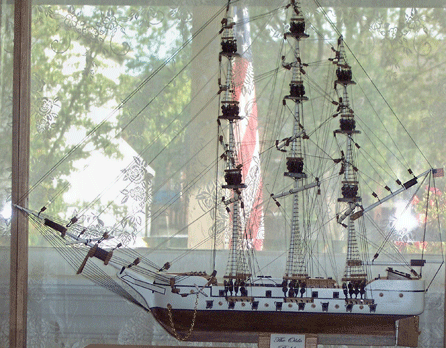
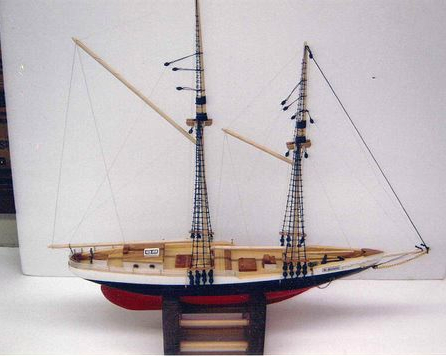
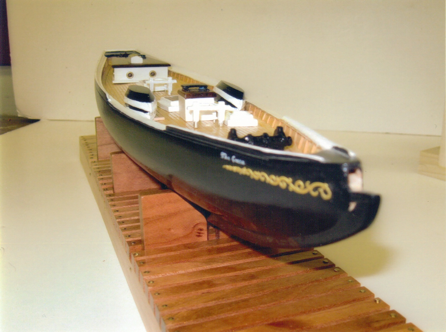
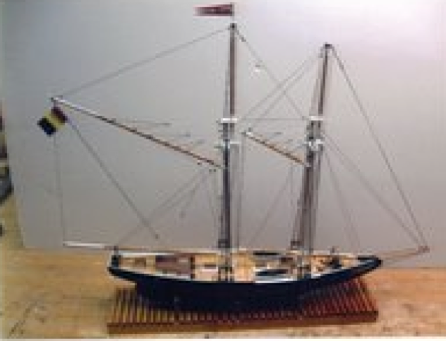 It's not a case of "great minds think alike," but Editor John Norton wrote of the Patrick O'Brian series in a recent editorial in Our Sunday Visitor ("Summer reading that makes for poor - or better - Dads," OSV July 24, 2011). John Norton cited many of the same details that have drawn me to these novels, especially the Catholic sub plots.
It's not a case of "great minds think alike," but Editor John Norton wrote of the Patrick O'Brian series in a recent editorial in Our Sunday Visitor ("Summer reading that makes for poor - or better - Dads," OSV July 24, 2011). John Norton cited many of the same details that have drawn me to these novels, especially the Catholic sub plots.
Captain Jack Aubrey, like every officer in the Royal Navy at that time, was a loyal member of the Church of England with a disdain for "papists" and "popery." However, his best friend, ship's physician Stephen Maturin, is a devout Irish/Catalan Catholic and a spy for British intelligence. Stephen Maturin introduces into the stories an intrigue and commitment to reason that counterbalances Jack Aubrey’s "full speed ahead" style.In an odd Catholic twist in the series, as Captain Jack Aubrey is promoted to Admiral, and all the political requirements such office required, he learns that his half-black son - born out of wedlock in Aubrey's youth before the series begins - becomes a Catholic priest for whom the anti-Catholic Admiral becomes intensely proud.There is also much music. In the very first chapter of the very first book, Captain Jack Aubrey and Dr. Stephen Maturin met while quarreling over a seat at a concert.Aboard ship, they are both accomplished musicians – “prodigious fiddlers,” the Captain would say. In one of the early novels – I can’t remember which – the crew of the HMS Surprise sinks into near despair while caught for days in the equatorial doldrums. Her sails just hang for days from the lack of wind. Captain Aubrey asked Dr. Maturin for some music to stir their hearts. “How about ‘Stone Walls do Not a Prison Make,’” said the doctor. It’s the poem by Richard Lovelace on the masthead of These Stone Walls. At some point across the centuries, it had been set to music.These adventures at sea have been an enormous blessing as both Pornchai and I faced long stretches against the wind, or hung out to dry in the doldrums of prison life. My first ever "Stuck Inside Literary Award" goes to the late Patrick O'Brian.
"So it was we who strayed from the way of truth,and the light of righteousness did not shineon us, and the sun did not rise upon us.We took our fill of the paths of destruction,and we journeyed through trackless deserts.All those things have vanished like a shadow,and like a rumor that passes by,like a ship that sails through the billowy water,and when it passes no trace can be found,nor track of its keel in the waves."(Wisdom of Solomon 5:7,9-10)"Those who sail the sea tell of its dangers, and we marvel at what we hear.For in it are strange and marvelous works,all kinds of living things, and huge creatures of the sea.Because of him his messenger finds the way, and by his word all things hold together."(Sirach 43:24-26)
